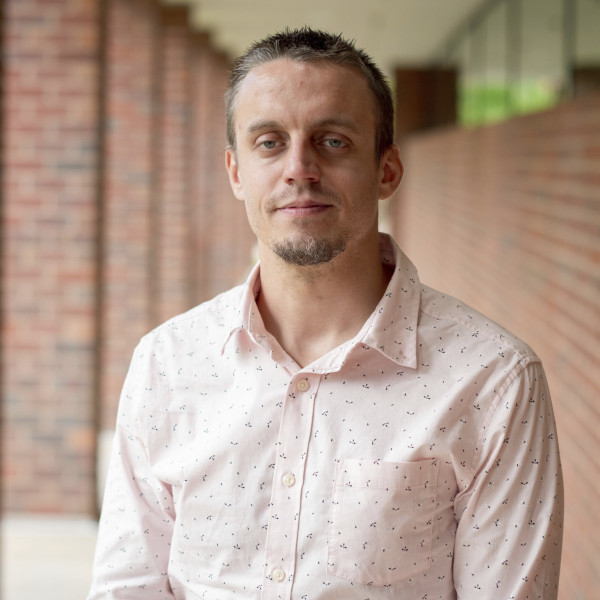Get the latest news
Subscribe to receive updates from the School of Data Science.

Javier Rasero is a physicist and data scientist interested in obtaining the maximum amount of information from the brain. His research focuses on developing and applying new pipelines and methodologies to efficiently integrate multimodal brain data, aiming to predict and explain individual differences in both healthy and neuropathological populations.
His research experience before joining UVA includes postdoctoral years at the University of Bari (Italy) and the Biobizkaia Health Research Institute (Spain), where he developed and applied machine learning methods for studying brain disorders using connectivity data. He followed this with a postdoctoral position in the CoAx Lab at Carnegie Mellon University (Pittsburgh), contributing to the growth of the Health Neuroscience field by building predictive models of cardiovascular disease risk factors from neuroimaging data.
Javier Rasero is enthusiastic about building methodological pipelines that could ultimately be translated into clinical settings. Indeed, he has contributed in this direction within neuroscience and other fields such as melanoma cancer. Additionally, he strongly advocates for the open-source philosophy, and as a result, he has developed several freely available libraries and toolboxes for working with brain data. Javier Rasero holds a Ph.D. and M.Sc. in Physics from the University of Valencia (Spain), and a B.Sc. in Physics from the University of the Basque Country (Spain).
Rasero, J., Jimenez-Marin, A., Diez, I., Toro, R., Hasan, M. T., & Cortes, J. M. (2023).
The Neurogenetics of Functional Connectivity Alterations in Autism: Insights From
Subtyping in 657 Individuals. Biological Psychiatry, S0006322323012301.
https://doi.org/10.1016/j.biopsych.2023.04.014
Rasero, J., Sentis, A. I., Yeh, F.-C., & Verstynen, T. (2021). Integrating across
neuroimaging modalities boosts prediction accuracy of cognitive ability. PLOS
Computational Biology, 17(3), e1008347.
https://doi.org/10.1371/journal.pcbi.1008347
Rasero, J., Diez, I., Cortes, J. M., Marinazzo, D., & Stramaglia, S. (2019).
Connectome sorting by consensus clustering increases separability in group
neuroimaging studies. Network Neuroscience, 3(2), 325–343.
https://doi.org/10.1162/netn_a_00074
Rasero, J., Aerts, H., Ontivero Ortega, M., Cortes, J. M., Stramaglia, S., &
Marinazzo, D. (2018). Predicting functional networks from region connectivity profiles
in task-based versus resting-state fMRI data. PLOS ONE, 13(11), e0207385.
https://doi.org/10.1371/journal.pone.0207385
Rasero, J., Pellicoro, M., Angelini, L., Cortes, J. M., Marinazzo, D., & Stramaglia, S.
(2017). Consensus clustering approach to group brain connectivity matrices. Network
Neuroscience, 1(3), 242–253. https://doi.org/10.1162/NETN_a_00017
Rasero, J., Alonso-Montes, C., Diez, I., Olabarrieta-Landa, L., Remaki, L., Escudero,
I., Mateos, B., Bonifazi, P., Fernandez, M., Arango-Lasprilla, J. C., Stramaglia, S.,
Cortes, J. M., & the Alzheimer’s Disease Neuroimaging Initiative. (2017).
Group-Level Progressive Alterations in Brain Connectivity Patterns Revealed by
Diffusion-Tensor Brain Networks across Severity Stages in Alzheimer’s Disease.
Frontiers in Aging Neuroscience, 9, 215. https://doi.org/10.3389/fnagi.2017.00215
Rasero, J., Amoroso, N., La Rocca, M., Tangaro, S., Bellotti, R., Stramaglia, S., & for
the Alzheimer’s Disease Neuroimaging Initiative. (2017). Multivariate regression
analysis of structural MRI connectivity matrices in Alzheimer’s disease. PLOS ONE,
12(11), e0187281. https://doi.org/10.1371/journal.pone.0187281
Mancuso, F., Lage, S., Rasero, J., Díaz‐Ramón, J. L., Apraiz, A., Pérez‐Yarza, G.,
Ezkurra, P. A., Penas, C., Sánchez‐Diez, A., García‐Vazquez, M. D., Gardeazabal,
J., Izu, R., Mujika, K., Cortés, J., Asumendi, A., & Boyano, M. D. (2020). Serum
markers improve current prediction of metastasis development in early‐stage
melanoma patients: A machine learning‐based study. Molecular Oncology, 14(8),
1705–1718. https://doi.org/10.1002/1878-0261.12732
Subscribe to receive updates from the School of Data Science.